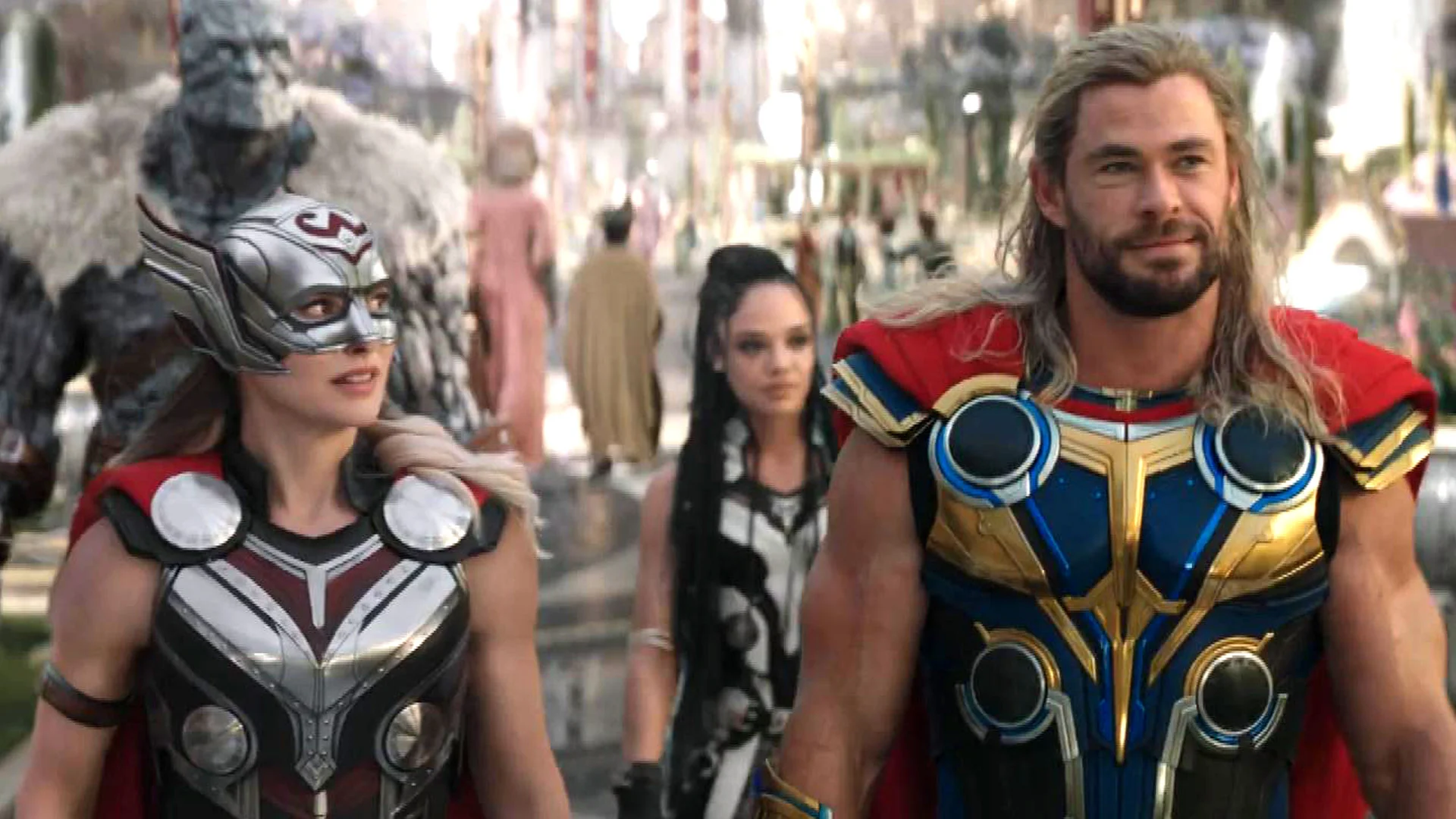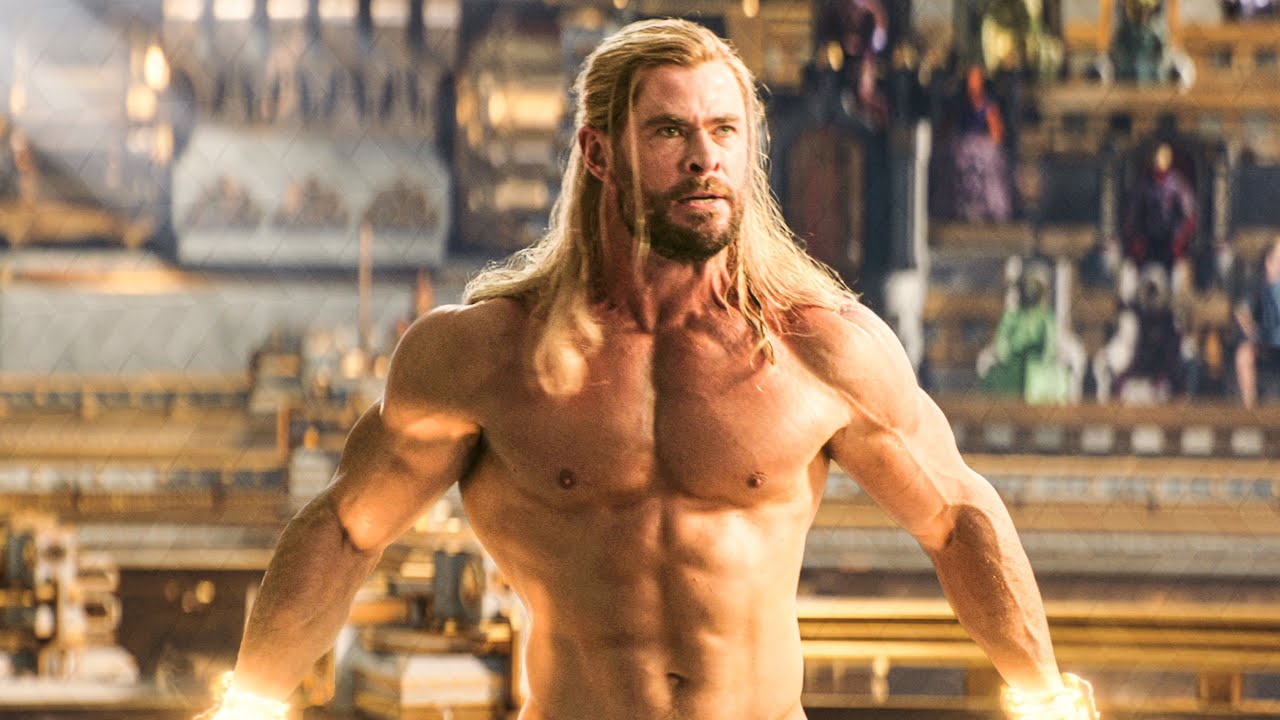Thor: Love and Thunder (2022)

Review of Thor: Love and Thunder (2022)
Introduction and Background
Thor: Love and Thunder (2022) is the fourth solo film featuring the God of Thunder in the Marvel Cinematic Universe (MCU), directed by Taika Waititi. Following the success of Thor: Ragnarok (2017), which reinvented the character with a vibrant comedic tone, Love and Thunder continues that stylistic approach but with an added emotional depth. The film follows Thor (Chris Hemsworth) as he embarks on a new journey of self-discovery, only to be interrupted by the rise of Gorr the God Butcher (Christian Bale), a vengeful being on a mission to eliminate all gods. Alongside his ex-girlfriend Jane Foster (Natalie Portman), who has now become the Mighty Thor, and his loyal allies Korg (Waititi) and Valkyrie (Tessa Thompson), Thor must face his most personal and devastating challenge yet. With a mix of action, humor, and heartfelt moments, Thor: Love and Thunder aims to explore themes of love, loss, and destiny within the larger-than-life scope of the MCU.
Story and Themes
The film’s narrative is heavily influenced by Jason Aaron’s Mighty Thor comic run, particularly the storyline where Jane Foster wields Mjolnir while battling cancer. This aspect of the story adds an emotional weight that contrasts with the film’s otherwise lighthearted tone. Thor, after losing much of his purpose following the events of Avengers: Endgame, is drawn back into battle when Gorr begins his crusade against the gods. Jane’s transformation into the Mighty Thor provides a compelling subplot, exploring themes of sacrifice and the fleeting nature of life. Meanwhile, Gorr’s arc presents a tragic villain whose pain and suffering fuel his hatred towards the gods, making him one of the more nuanced antagonists in the MCU. The film also delves into the idea of divine responsibility, questioning whether gods deserve worship if they are indifferent to their followers’ suffering. However, despite these deeper themes, the movie leans heavily into its comedic elements, sometimes undercutting the emotional impact of its more serious moments.
Characters and Performances
Chris Hemsworth once again delivers a charismatic performance as Thor, balancing his comedic and heroic sides. His chemistry with Natalie Portman is one of the film’s highlights, as Jane’s return brings a fresh dynamic to the story. Portman’s portrayal of the Mighty Thor is both powerful and heartfelt, capturing the essence of a warrior struggling with her own mortality. Christian Bale’s Gorr is a standout, delivering a chilling and emotionally driven performance that elevates the film’s villain beyond a typical MCU antagonist. Tessa Thompson’s Valkyrie remains a fan favorite, though her role is somewhat sidelined compared to Ragnarok. Taika Waititi’s Korg provides much of the film’s humor, but at times his comedic relief feels excessive, especially during critical moments. Russell Crowe’s portrayal of Zeus is a divisive addition, as his exaggerated performance adds to the film’s satirical take on deities but may not resonate with all audiences. Overall, the cast brings strong performances, though the film’s tonal shifts sometimes make it difficult for the more serious moments to land effectively.
Cinematography, Effects, and Legacy
Visually, Thor: Love and Thunder embraces a colorful, almost surreal aesthetic reminiscent of classic rock album covers, complete with lightning-filled battle sequences and cosmic landscapes. The film’s soundtrack, featuring Guns N’ Roses and other rock anthems, enhances its energetic and nostalgic feel. However, the CGI quality is inconsistent, with some sequences appearing less polished compared to previous MCU films. The action scenes are creative and visually striking, particularly the shadowy realm where Thor and his allies confront Gorr. Despite its ambitious themes and high-energy presentation, Thor: Love and Thunder received mixed reactions from fans and critics. Some praised its humor and emotional core, while others felt that its reliance on comedy weakened its more impactful moments. As part of the MCU’s Phase 4, the film contributes to Thor’s evolving journey but does not necessarily push the larger universe forward in a significant way. Regardless, it remains a bold and entertaining entry that continues to redefine the character of Thor while embracing both the absurdity and heart of his mythology.











